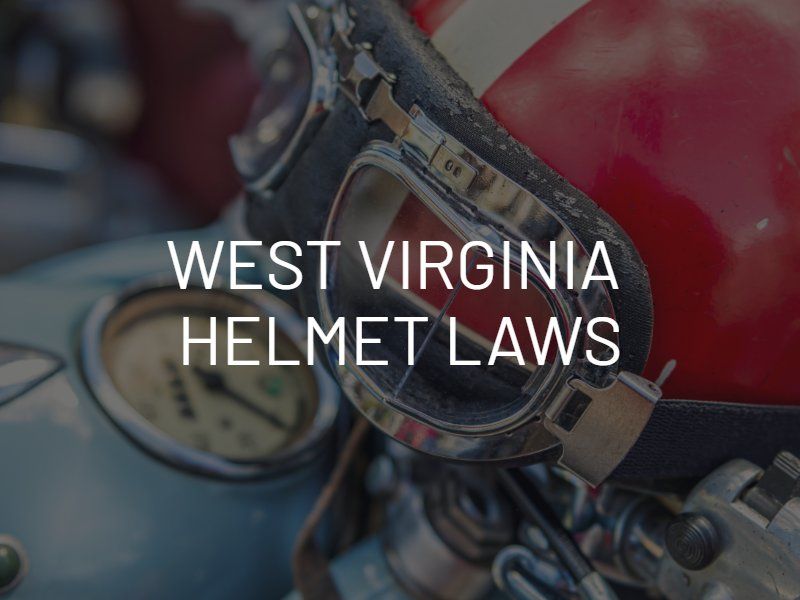Wearing a motorcycle helmet has proven safety benefits for the driver and passengers. According to the Centers for Disease Control and Prevention (CDC), motorcycle helmets reduce the risk of head injury by 69% and the risk of death by 37%. The CDC also reports that motorcycle helmet laws are the most effective way for states to save lives and to save money on healthcare costs. West Virginia took this advice to heart – the state has a universal helmet law that requires the operator and any passengers to wear helmets while on a motorcycle. Here are the facts on WV’s helmet laws.
Are Motorcyclists Required to Wear a Helmet in West Virginia?
Everyone, no matter their age, must wear a helmet while operating or riding on motorcyclists in the state of West Virginia since they have a universal helmet law. WV Code §17C-15-44 states, “No person shall operate or be a passenger on any motorcycle…unless the person wears a protective helmet securely fastened to the head by a neck or chin strap.” The helmet must abide by safety standards set in place by the American National Standards Institute, Snell Safety Standards, or the United States Department of Transportation. These standards for helmets include:
- Thick inner liner of firm, polystyrene foam
- Sturdy chinstrap with solid rivets
- Weight of about three pounds
- Proper positioning on the head
- Projections from the helmet may not exceed two millimeters outward
In addition, there are several impact absorption, penetration resistance, and blow deflection standards helmets must follow. Look for a “DOT certified” sticker or label on a helmet to make sure it obeys all necessary federal rules. These standards are in place to protect motorcyclists and save lives. They come from years of helmet and impact research. Helmets that don’t fulfill industry standards may not protect the head in the event of an accident, leaving riders more susceptible to traumatic brain injuries.
Penalties for Failure to Wear a Helmet
There are no exceptions to West Virginia’s universal motorcycle helmet law. Operating or riding on a motorcycle without a helmet that fulfills federal standards is a crime punishable with a traffic citation, fines, and potential suspension of license. If you get into an accident and weren’t wearing a helmet, you may be ineligible to recover for your damages.
The defendant could argue that you wouldn’t have sustained your head or brain injuries had you obeyed the law and wearing an approved helmet. At the very least, the courts may find you partially liable for your injuries under West Virginia’s modified comparative negligence laws. This means you’ll receive a reduced compensation amount based on your percentage of fault for failure to wear a helmet.
Other Relevant Motorcycle Laws
Helmets aren’t the only things motorcyclists have to worry about in WV. Motorcyclists must obey other related laws, such as only carrying passengers on vehicles designed for more than one person. All motorcycles must have rearview mirrors that give the operator a clear view of the road behind him/her for at least 200 feet. Motorcycle operators and any passengers must also wear shatter-resistant safety glasses, eye goggles, or face shields that adhere to federal standards. Disobeying the state’s universal motorcycle laws can lead to legal trouble and missed opportunities for compensation after a motorcycle accident in West Virginia.








